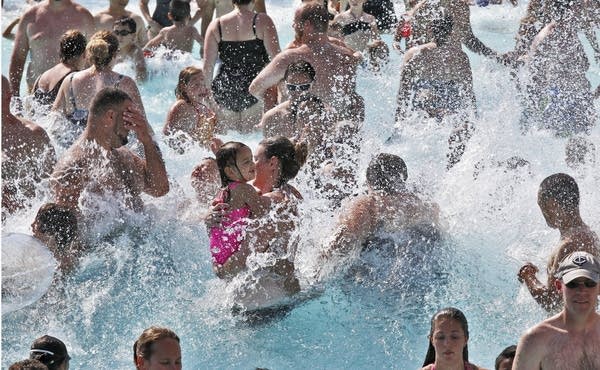How will humans respond to life in a hotter world?

The wave pool and lazy river at Bunker Beach in Bunker Hills Regional Park was filled to capacity with people beating the heat Sunday, Aug. 25, 2013.
AP Photo/ The Star Tribune, Marlin Levison
Go Deeper.
Create an account or log in to save stories.
Like this?
Thanks for liking this story! We have added it to a list of your favorite stories.


